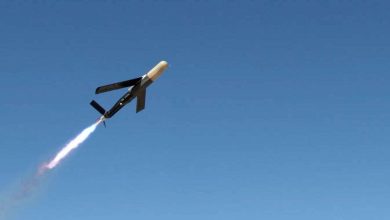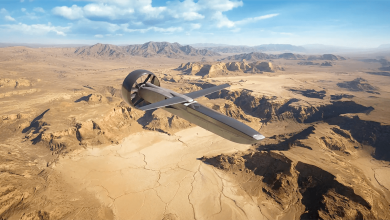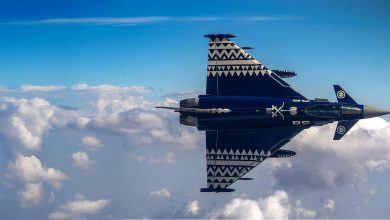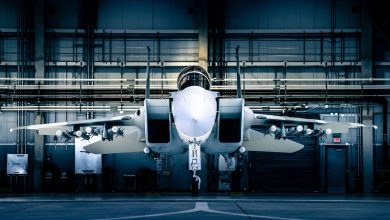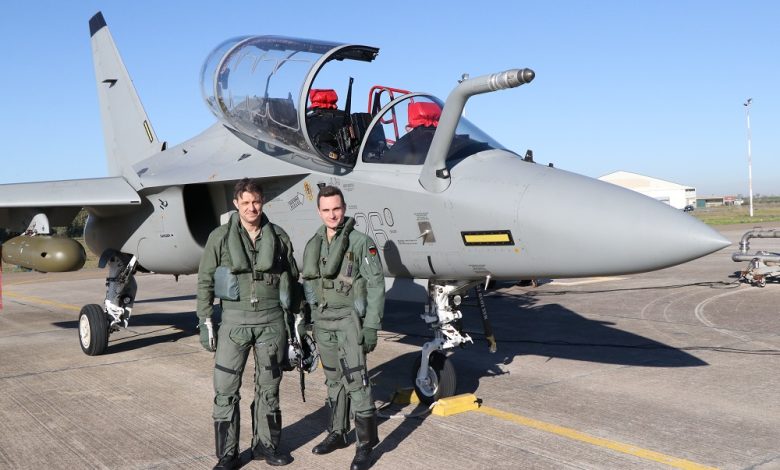
The International Flight Training School (IFTS), a collaboration between the Italian Air Force and Leonardo alongside CAE, has awarded the inaugural Phase IV (Advanced/Lead-In to Fighter Training) diploma to two Luftwaffe pilots after fulfilling their training requirements.
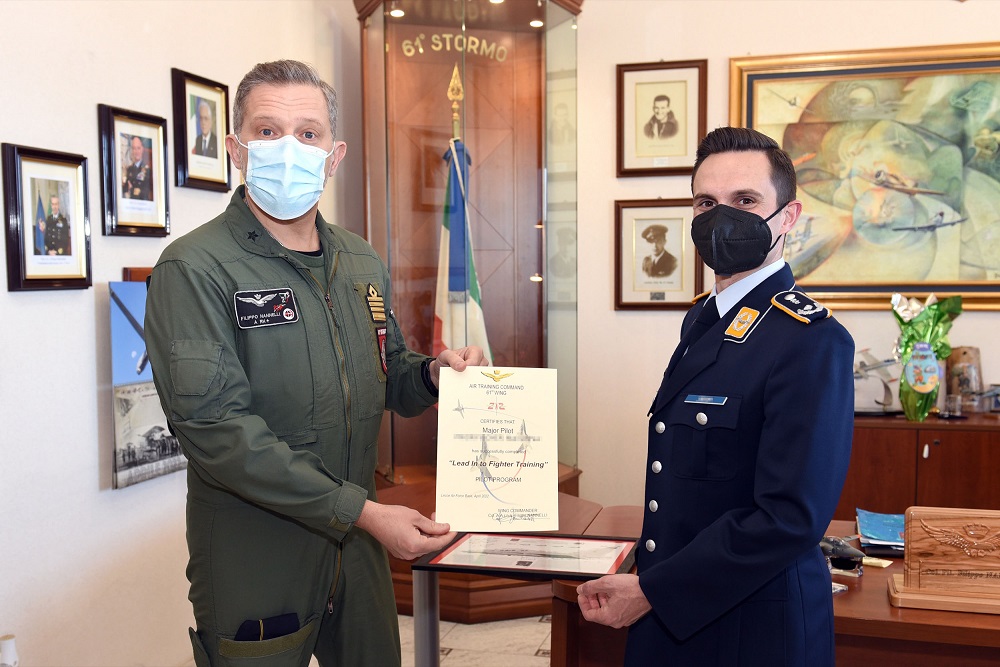
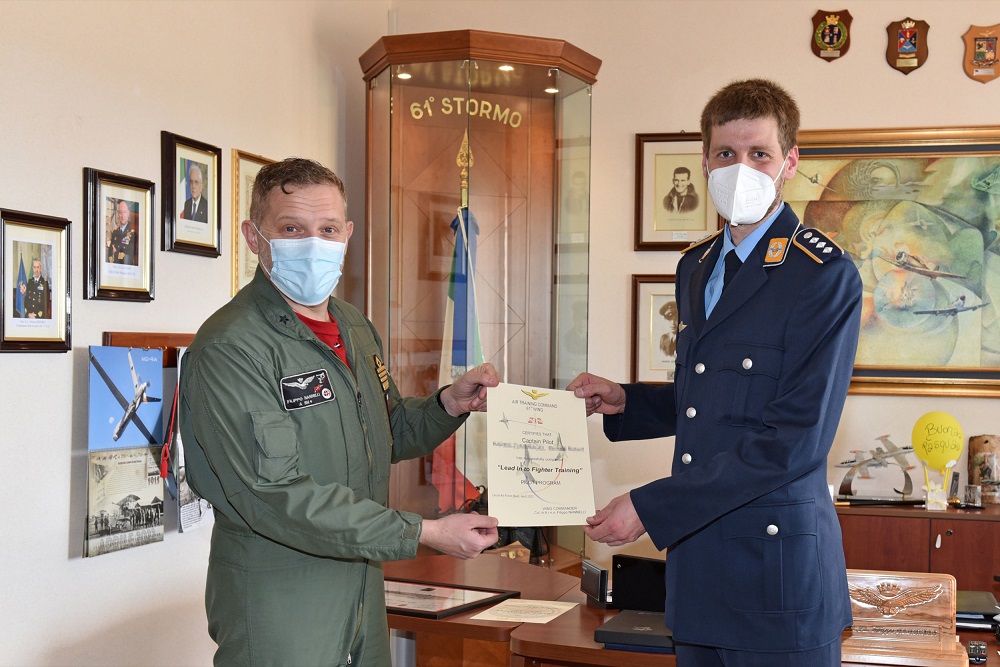
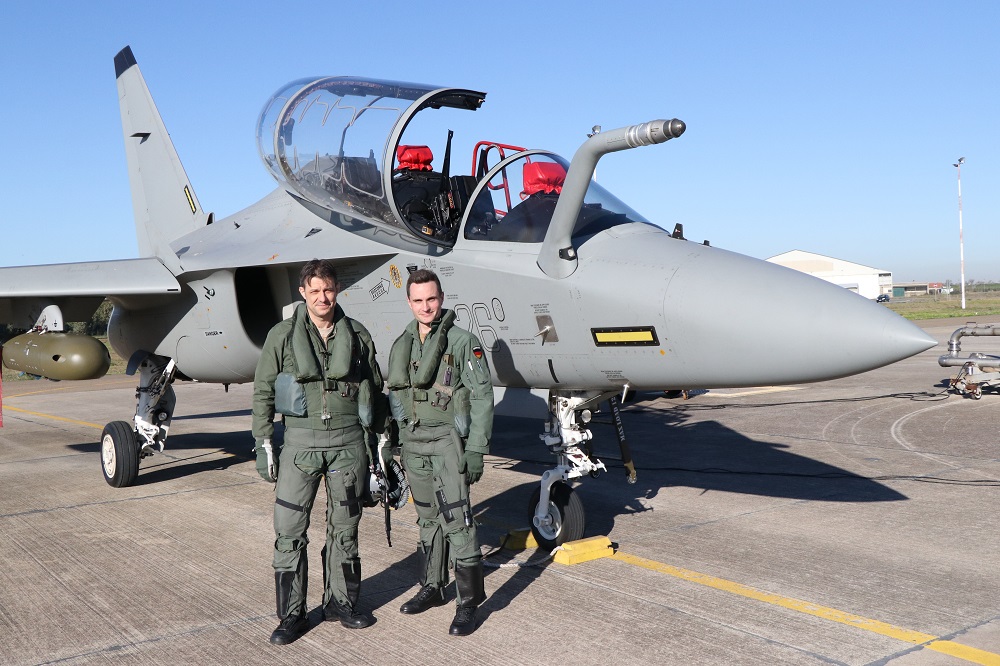
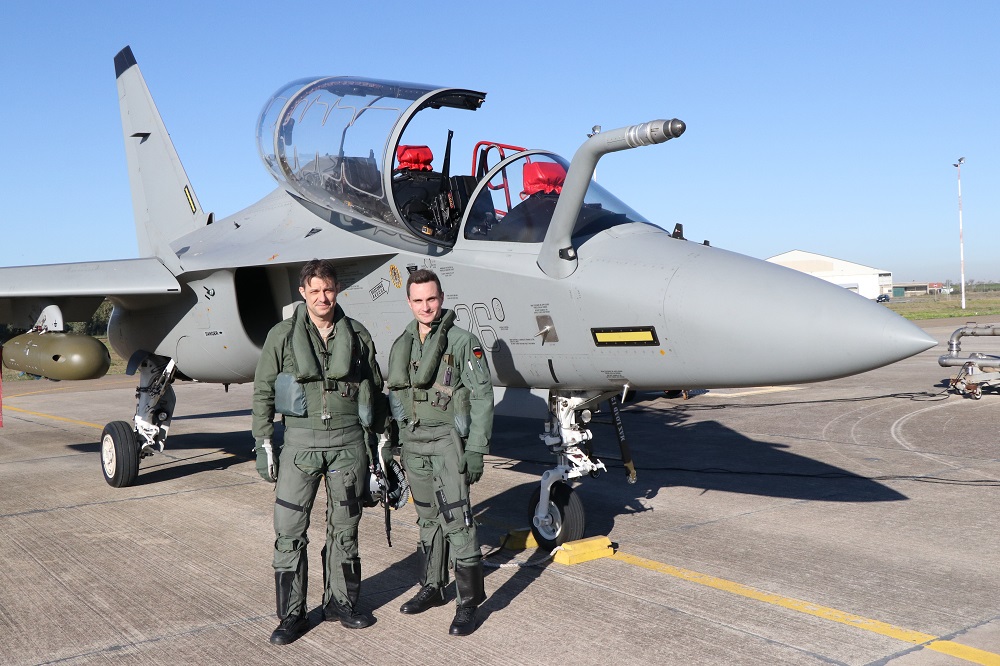
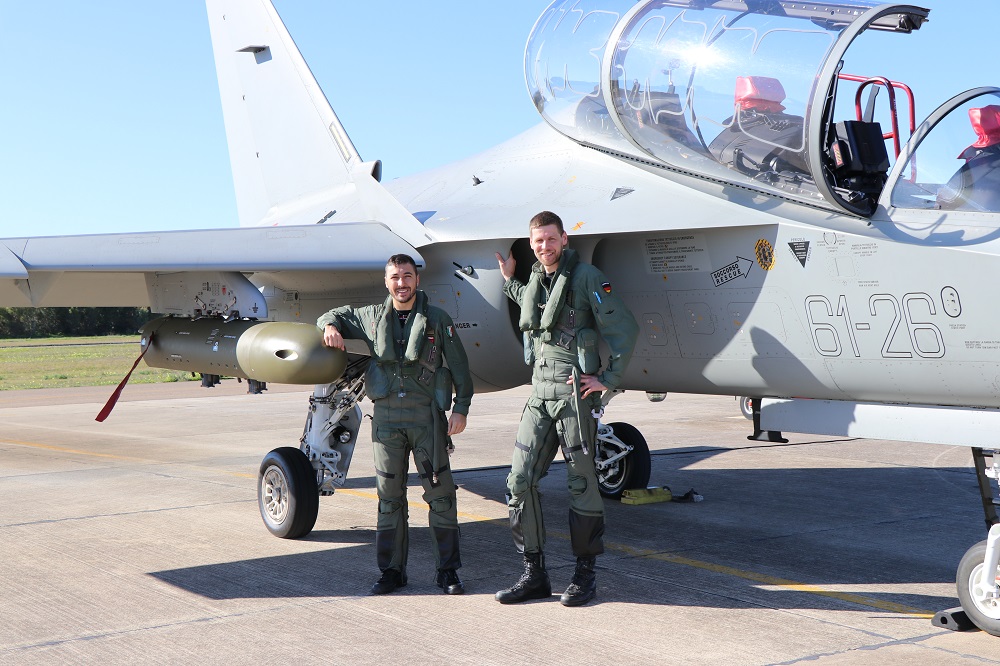
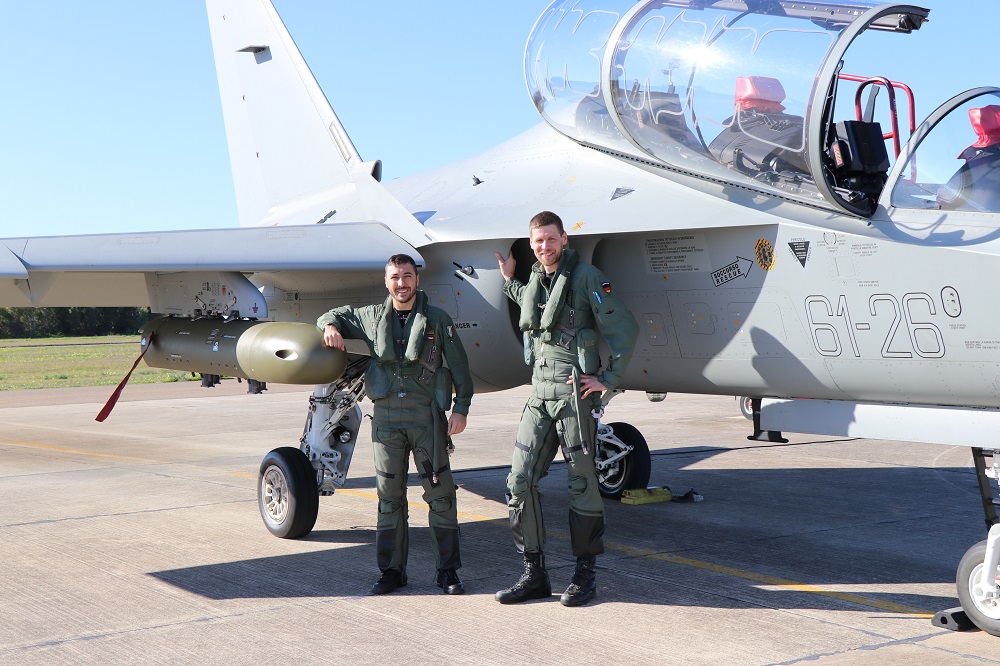
The training sessions were held over a duration of nine months at Galatina Airport (Lecce, Southern Italy), the base of the 61st Wing of the Italian Air Force, now hosting the IFTS. The facility is set to reach its full capacity with the opening of a new campus in Decimomannu, Sardinia.
The IFTS initiative is driven by the aim to unite two national strengths: the expertise in training military aviators from the Italian Air Force, bolstered by over 75 years of experience at the Galatina flight academy, combined with the cutting-edge technological solutions provided by Leonardo, Italy’s foremost industrial organization in aerospace and defense.
This IFTS programme holds substantial strategic significance, and once fully operational, it aims to double the current training offerings through the establishment of a second training center. This military-oriented center will remain under the auspices of the 61st Wing, distributed between the Galatina air base and Decimomannu, Sardinia.
Thanks to highly skilled instructor pilots, both from military and civilian backgrounds, as well as an advanced integrated training system utilizing Leonardo’s M-346 aircraft (designated T-346A by the Air Force), the IFTS stands as an international hub of excellence, with a mission to prepare military aviators to operate next-generation fighters while equipping them with essential technical and procedural skills for deployment in increasingly sophisticated operational environments.
The new IFTS campus, presently under construction at Decimomannu Air Force Base (Cagliari), is thoughtfully designed to meet the training requirements of upcoming student pilots. A dedicated facility will focus on the Ground Based Training System (GBTS), featuring state-of-the-art simulation technologies that facilitate integrated training scenarios between simulated and real aircraft, leveraging Live Virtual Constructive (LVC) technology. Furthermore, logistics and maintenance infrastructures will be developed to oversee the operation of the 22 M-346 aircraft currently at the IFTS, alongside logistical support structures to accommodate trainees during their training (housing, dining facilities, sports amenities). “Leonardo CAE Advanced Jet Training,” a collaboration between Leonardo and CAE, will handle the maintenance and logistical operations of the M-346 aircraft and simulators.
Throughout the Phase IV course (Advanced/Lead-In to Fighter Training), participants also benefit from opportunities to train in real shooting scenarios in designated training zones, enabling them to practically apply the skills they have honed.
Currently, in addition to Germany, several other nations have selected IFTS for the advanced training of their pilots, reaffirming the global appeal of the Italian training program, which stands as a distinctive leader on the world stage.





